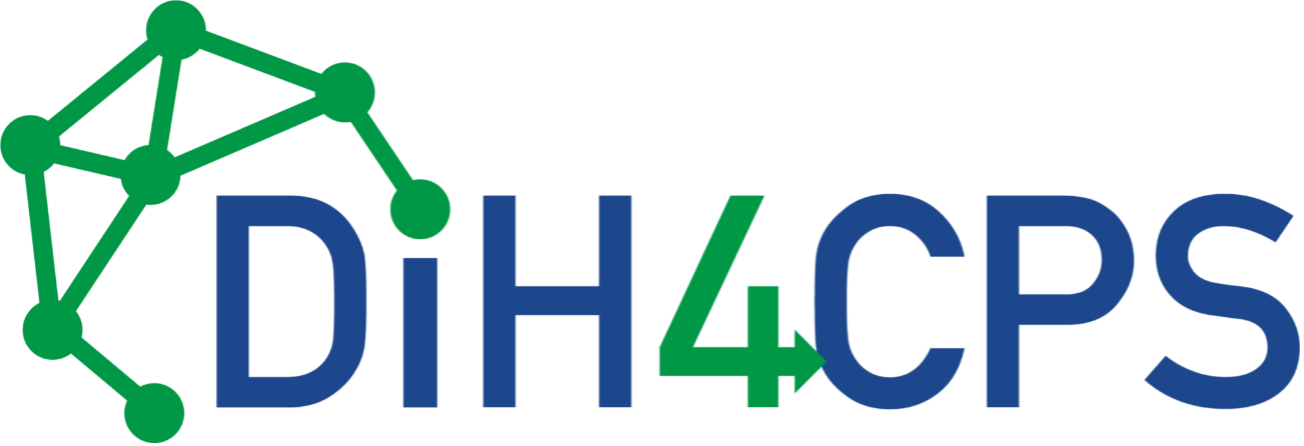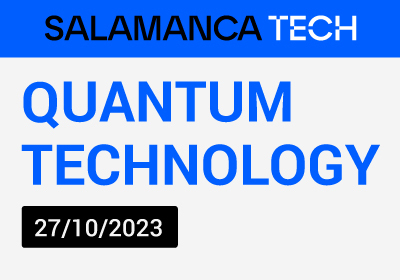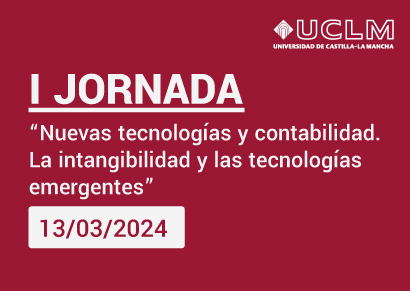Research Conferences
Publications
Guest Editorial: The Era of Industry 5.0-Technologies from No Recognizable HM Interface to Hearty Touch Personal Products
IEEE Transactions on Industrial Informatics, Vol. 18, Núm. 8, pp. 5432-5434
Demand response performance and uncertainty: A systematic literature review
Energy Strategy Reviews, Vol. 41
Tuning Database-Friendly Random Projection Matrices for Improved Distance Preservation on Specific Data
Applied Intelligence, Vol. 52, Núm. 5, pp. 4927-4939
Towards a Blockchain-Based Peer-to-Peer Energy Marketplace
Energies, Vol. 15, Núm. 9
LidSonic for Visually Impaired: Green Machine Learning-Based Assistive Smart Glasses with Smart App and Arduino
Electronics (Switzerland), Vol. 11, Núm. 7
Evaluation metrics and dimensional reduction for binary classification algorithms: A case study on bankruptcy prediction
Knowledge Engineering Review, Vol. 37, Núm. 4
Blockchain-Based Land Registry Platforms: A Survey on Their Implementation and Potential Challenges
Logic Journal of the IGPL, Vol. Special issue CISIS 2020-IGPL
An Intelligent Coaching Prototype for Elderly Care
Electronics (Switzerland), Vol. 11, Núm. 3
A Hybrid Model for the Measurement of the Similarity between Twitter Profiles
Sustainability (Switzerland), Vol. 14, Núm. 9
Net-metering and net-billing in photovoltaic self-consumption: The cases of Ecuador and Spain
Sustainable Energy Technologies and Assessments, Vol. 53
Evaluation metrics and dimensional reduction for binary classification algorithms: A case study on bankruptcy prediction
Knowledge Engineering Review, Vol. 37, Núm. 4
Projects
FARMS4CLIMATE: Smart governance and operational models for agroecological carbon farming

Summary:
The FARMS4CLIMATE project understands that technologies alone are not sufficient to effectively transform agrosystems. The consortium therefore proposes a transformation strategy that includes four elements: 1) a "change element", which in this case will be a specific regenerative farming practice with demonstrated economic benefits as well as C sequestration capacity; 2) a "change agent", a sustainable farmer (and demonstration site owner) committed to showing the way forward; 3) a bottom-up approach that can engage stakeholders from the earliest stages, which is a living lab programme designed for inspiration and; 4) a multi-stakeholder approach to align visions and interests, which is already evident in the consortium structure that includes farmers, farming organisations, agronomic research centres.
The FARMS4CLIMATE consortium will run living labs with such a strategic approach in five different locations in the Mediterranean (two in Italy, one in Egypt, one in Tunisia and one in Spain). Each programme will focus on a specific regenerative practice, with the aim of creating five Community Based Organisations (CBOs) that can drive economic growth through virtuous emblematic carbon management embedded in agro-ecological principles and thanks to frugal innovations. The consortium will provide the knowledge and tools necessary for the CBOs to autonomously determine their action plan, which will aim to improve agricultural profitability for smallholder farmers by: 1) providing a method to differentiate products (i.e. carbon negative) and thus earn higher margins; 2) generating multiple income streams (i.e. carbon offsetting, increased tourism); 3) recognising the role of women in the economic cycle; 4) digitally enabling resource and knowledge sharing; 5) simplifying access to markets by pooling crops and promoting short supply chains; 6) paving the way for localised economies of scale to emerge.
GRIDIRON: intelliGent automated testing of electRonIc DevIces foR covid detectiON

Summary:
The GRIDIRON project aims to detect and prevent potential errors in the circuits, electrodes and vials used in diagnostic tests. Biosensors are interesting devices that emerge from a synergistic combination of well-established scientific knowledge and cutting-edge technologies including nanotechnology, rational design, materials science and microfluidics. These devices have proven to be useful in various sectors (e.g. medical, agri-food, environmental) and have demonstrated good practicality, sensitivity, reproducibility and fast response. However, a critical analysis of the global biosensor market suggests that there is a bottleneck in the level of technological readiness in prototype development, corresponding to a large gap between academic research and industrial investments.
The global biosensor market size was valued at USD 22.4 billion in 2020 and is expected to expand at a compound annual growth rate (CAGR) of 7.9% between 2021 and 2028. Biosensors, owing to their ability to assess health status and disease onset and progression, are being widely used by patients in home healthcare and are therefore expected to drive market growth during the forecast period. Moreover, technological advancements as well as various non-medical applications are expected to enhance the applicability of the biosensors market, thereby promoting its growth.
Therefore, there is a need to automate and optimise production processes in the manufacture of biosensors and electronic ancillary materials to reduce costs and false negatives in diagnostic tests. In this sense, there is a growing trend to invest in solutions that detect production failures in increasingly robotic biosensor manufacturing environments.
GO0D MAN: AGent Oriented Zero Defect Multi-Stage MANufacturing
Summary:
The GO0D MAN project aims to develop zero defect manufacturing (ZDM) strategies in multi-stage production systems by integrating quality control and process control using cyber-physical systems, intelligent inspection systems and advanced data analysis tools. As a result, it will be possible to detect deviations and patterns earlier and in real time, and consequently prevent the occurrence of defects at stations and their propagation to downstream processes.
PRISMA: BigData And IoT Platform For The Optimization Of Processes

Summary:
The PRISMA Project aims to create an IT platform for data management in companies, with the objective of optimising all the steps within an industrial process. Through this platform, the planning and management of product manufacturing becomes much more efficient. Thanks to this project, the Internet of Things is becoming increasingly important. We are taking a further step in the development of Industry 4.0 because, thanks to this project, the role of the Internet of Things is becoming increasingly important. The dynamism of the market means that highly competitive products are needed. One of the key objectives of the fourth industrial revolution is the reduction of costs through the optimisation of resources and the digitisation of processes, providing information that can be used to increase efficiency.
QUF Life+: Quick Urban Forestation

Summary:
The QUF project will try to propose a better and cheaper solution for southern European cities, based on the use of three techniques to avoid irrigation as much as possible, improve soil conditions, increase the speed of growth and monitor the results. Its main objective was to create an experimental urban forest in the city of Valladolid. The aim of the experiment was to test different techniques for planting native species in an effort to grow an urban forest that would not need irrigation in the heat of summer. Around 15,000 trees have been planted, a monitoring and information analysis network has been deployed to obtain information on temperature and humidity at the roots and on the surface, and to observe the behaviour of the plants' stems. The data obtained from the sensors were processed and a survival analysis was carried out to study the results of the experiment.
ARUM: Adaptive Production Management

Summary:
The ARUM project aims to develop mechanisms for faster and more adaptive ramp-up processes using multi-agent systems. The ARUM solution will be implemented in two modes: predictive and real-time simulation. The predictive mode supports the planning phase, while the real-time operations mode supports dynamic, time-, cost- and risk-oriented replanning of operations. Provision of information for engineering to alter in case of immaturity or late change requests is also supported. ARUM is strongly end-user oriented and the results will be tested in three industrial use cases with a focus on aircraft, aircraft interiors and ship manufacturing. The solution will be validated in a real industrial environment by industrial partners and compared to current ICT solutions. In collaboration with universities, a testbed for the design and testing of ARUM systems and tools will be established and opened for dissemination and demonstration.
People Analytics
Summary:
The People Analytics project is an expert system in the analysis of people. It applies Artificial Intelligence and Big Data techniques to information about people extracted from different public sources. Patterns are identified and profiles are developed to help gain more knowledge about people and predict their behaviour. This allows users of the system to make decisions based on objective data.
Expand Intelwines
Summary:
The Expand Intelwines project aims to develop and implement new artificial intelligence techniques in the production process of a winery to support decision making and improve food safety: A new smart palletisation system for optimisation in winery logistics.
This intelligent palletisation system for warehouse logistics optimisation aims to offer a solution to increase the load capacity of each pallet, thus reducing the number of pallets needed in shipments and reducing transport costs. Such a solution should provide the optimal arrangement of boxes on each pallet for workers in the palletising process through an interface that respects the ergonomics of the working environment.
This project has the following objectives: to provide the optimal arrangement of boxes on each pallet for workers in the palletising process through an interface that respects the ergonomics of the working environment, to reduce costs, to increase the average load capacity of each pallet, to reduce the average time spent on palletising products and to reduce the average subjective workload of the worker.
COAPS: Crowdsourced Obtention and Analytics of Data About the Crowding of Public Spaces for the Benefit of Public Transport and Mobility in Cities

Summary:
The COAPS Project consists of the development of a mobile application to help reduce the spread of COVID-19 by managing density in public transport and public spaces. The Co-Aps platform implements mobile technology to collect anonymous user data, open city data and data from third-party services to provide relevant crowd and density information to public transport operators and city authorities. This is done to inform and therefore better protect citizens against the global pandemic by enabling them to avoid crowds.
DIH-WORLD: Accelerating deployment and matureness of DIHs for the benefit of Digitisation of European SMEs+

Summary:
The DIH-World project aims to accelerate the adoption of advanced digital technologies by European manufacturing SMEs in all sectors, supporting them in building sustainable competitive advantages and reaching global markets. DIH-World strengthens the capacities of regional DIHs, particularly in under-represented regions across Europe.
As intermediaries for the successful digital transformation of local SMEs, DIH-World aims to provide DIHs with access to harmonised tools, well-tested technologies, effective methodologies, solid knowledge, smart investment sources, rich training assets and, in general, a vibrant innovation environment.
The ultimate goal is to accelerate the maturity of IHLs and the development of their collaborative capacities, and to avoid an IHL gap due to lack of access to technologies, skills, networks, investment and infrastructures with special emphasis on under-represented regions; so that they can capitalise and leverage on European IHL networks, their resources and facilities for the benefit of their local SMEs.
DIH4CPS: Fostering DIHs for Embedding Interoperability in Cyber-Physical Systems of European SMEs

Summary:
The initiative to foster IHLs for embedding interoperability in European SMEs' cyber-physical systems (DIH4CPS) will help European companies overcome innovation barriers and establish Europe as a world leader in Fourth Industrial Revolution innovation. DIH4CPS will create a cross-disciplinary and all-encompassing network of DIH and solution providers, focusing on cyber-physical and embedded systems, weaving together knowledge and technologies from different domains and connecting regional clusters with the pan-European DIH expert group.
DIH4CPS will create a cross-disciplinary and all-encompassing network of IHL and solution providers, focusing on cyber-physical and integrated systems, interlinking knowledge and technologies from different domains and connecting regional groups with the pan-European IHL expert group. Backed by IVLab, an experienced and well-established network organisation focused on interoperability, DIH4CPS can innately build on an existing extensive network, add value to its existing knowledge transfer capabilities and ensure the sustainability of the growing IHL network. DIH4CPS extends the existing network and aims to create an integrated platform for IHL from different sectors and regions, especially digitally underdeveloped ones. A selection of eleven initial starting application experiments guarantees exceptional funding for European SMEs and mid-caps from the outset and demonstrates the consortium's strong dedication to bridging the digital divide. At least ten additional experiments will take up that torch during the project and enable external companies in the sectors in need to further exploit the DIH4CPS network and enhance their portfolio, especially by including (semi) autonomy in their products and systems.
IDIGIT4L: R&D&I For The Transformation Of Industrial Sectors And Infrastructures: Digitalisation And Its Intelligent And Predictive Implementation
Summary:
The iDIGIT4L project aims to research and develop a digitised ecosystem where people, objects and systems are involved in the intelligent and predictive transformation of industrial processes. This project addresses the concepts of Industrial IoT Gateway and Distributed Digital Twin for asset virtualisation. AI-based adaptive learning is used to optimise processes and product quality. The project employs non-intrusive IoT sensors, which provide convergence and modernisation solutions for industrial asset management. These solutions are suitable for all assets, regardless of their level of digitisation. Learning methods and tools are developed using information about people, assets and processes.
They provide immersive training and specialised remote assistance to workers and visualise complex data in real time, all thanks to the use of analytical dashboards and technologies such as Augmented Reality. The developed platform offers a flexible virtualisation method for industrial environments, which integrates, in a non-intrusive way, status and performance indicators from various heterogeneous sources. This information allows the definition of a Digital Twin with human-machine interfaces and their predictive models. The developed platform has sufficient intelligence to make timely decisions in real time; it has the ability to predict any deviation in behaviour and record the risk interval in which failures are triggered. In addition, Augmented Reality or Virtual Reality visualisation is possible on the factory floor, making technology available to people working with machines. Thus, the workforce becomes part of the Digital Twin, providing them with knowledge about everything that is happening. Data can be viewed on connected devices such as smartphones, tablets or Augmented Reality glasses, allowing staff to analyse and interact with data in real time. In addition, the ease with which data can be visualised facilitates the development of methodologies for the improvement of machine operation or fault detection, by measuring different variables such as temperature, consumption or operating curve.

